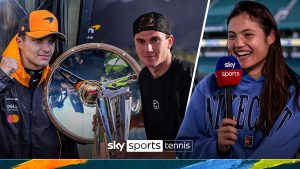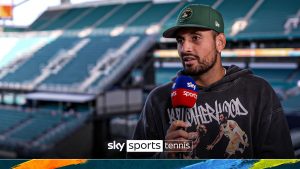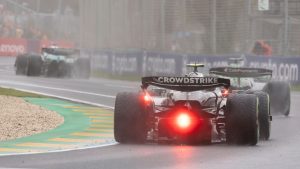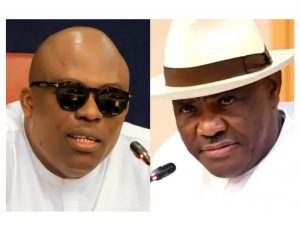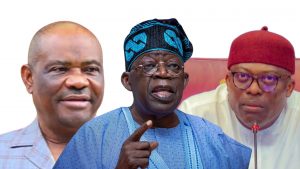MLB All-Star Game 2022: Seven questions heading into the MLB Draft
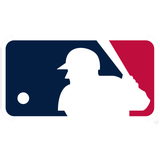

By Jordan Shusterman
FOX Sports MLB Writer
By pushing the draft back a month and holding it during All-Star Week, MLB moved to create a more fan-friendly event.
Last year’s inaugural draft-with-fans in Denver was a great start, and I’m sure things will feel even bigger this year, with the draft held at L.A. Live in downtown Los Angeles.
Still, even as the event grows to become more of a spectacle, it will always be about the players and what they mean to the teams calling their names. In 20 rounds over three days, all 30 teams will seize the opportunity to add significant talent to their respective organizations, and hundreds of young players’ dreams will come true.
It’s a thrill to watch.
Here are the seven questions I can’t wait to have answered in the 2022 MLB Draft.
1. Will the top eight go as expected?
Pull up a few mock drafts of your choosing from the past couple of weeks, and there’s a great chance you’ll see the same eight names assigned to the first eight picks — just in varying orders.
Those names:
* OF Druw Jones (Wesleyan HS, GA)
* SS Jackson Holliday (Stillwater HS, OK)
* SS Termarr Johnson (Mays HS, GA)
* OF Elijah Green (IMG Academy, FL)
* 3B Cam Collier (Chipola JC, FL)
* SS Brooks Lee (Cal Poly)
* C Kevin Parada (Georgia Tech)
* 3B/OF Jacob Berry (LSU)
Jones appears to be a lock to go either No. 1 to Baltimore or No. 2 to Arizona, but besides that, I’ve seen the other seven names in all kinds of orders, leaving draft enthusiasts’ imaginations to run wild with various scenarios and sequences.
It’s certainly not as locked in as drafts often are in other sports. But the consistency with which these eight names appear in the top eight spots has been notable. And that’s only going to make it that much more fun if/when a different player crashes the party and surprises everyone by hearing his name called with one of those first eight picks.
2. What will the Mets do in the first round?
The Mets enter Sunday with two first-round picks after they failed to sign Vanderbilt pitcher Kumar Rocker last year following some level of dispute about his post-draft medical.
Now, some could argue that they never should have been in this position in the first place, and their failure to sign Rocker should hardly be viewed retroactively as an exciting opportunity to have two first-round picks. Even with the system in place that compensates teams that fail to sign high draft picks, this should never be the plan.
Also, it’s undeniable that the pressure to maximize this opportunity is heightened after last year’s debacle. Further, two picks in the first round means the Mets have a sizable bonus pool to work with, which could enable them to get creative with the kinds of players they target.
Will they play it straight and take the two best players available? Could they get one of the top high school talents to fall to them at pick No. 11 and go underslot at No. 14? There are a lot of possibilities. The only thing we know (almost) for sure is that they won’t be spending either of those picks on Rocker.
3. Who will draft Kumar Rocker?
As much as the Mets’ strategy with picks Nos. 11 and 14 intrigues draft dorks such as myself, I can readily admit that the majority of fans are far more curious about which team will select Rocker this time around.
I’d argue he’s still the most famous player in this draft, even more so than the elite high school sons of big leaguers, including Jones and Holliday. Rocker made five starts in the independent Frontier League for the Tri-City ValleyCats and dominated, albeit against middling competition at best. His stuff looked good, but teams still have questions about his medical, even following the reporting of a minor shoulder cleanup procedure in September.
My best guess is that his agent, Scott Boras, secures him a signing bonus in the $2-$3 million range, and Rocker goes somewhere in picks No. 20-40. But I actually have no clue.
4. When will all the hurt pitchers get drafted?
Following Rocker’s medical saga last year, pitcher injuries unfortunately continued to be an enormous theme this spring, albeit in a much less cloudy way. A stunning number of the top arms in the class had Tommy John surgery in the past calendar year, all entering the draft at varying points in their rehab.
Those who could still hear their names called in the first couple of rounds of the draft include:
* LHP Connor Prielipp (Alabama) – Tommy John in May 2021
* LHP Reggie Crawford (UConn) – Tommy John in October 2021
* RHP Henry Williams (Duke) – Tommy John in December 2021
* RHP Peyton Pallette (Arkansas) – Tommy John in January 2022
* RHP Landon Sims (Mississippi State) – Tommy John in March 2022
* RHP Dylan Lesko (Buford HS, GA) – Tommy John in April 2022
* LHP Hunter Barco (Florida) – Tommy John in May 2022
On the flip side, we saw Oklahoma right-hander Cade Horton, who had Tommy John in February 2021, return to the mound in the middle of this spring and then have an epic postseason run that might land him in the first round. It’s fascinating how the timing of these surgeries can so drastically alter a pitcher’s draft stock for better or for worse.
Tommy John is so common now that I have to imagine most of these guys will still be drafted quite high, but this year will be a litmus test for organizations’ risk-tolerance for talented, injured pitchers.
There’s also the curious case of East Carolina left-hander Carson Whisenhunt, who finished last summer with Team USA projected to be a near-lock for the first round. Then he was suspended following a positive PED test in February and didn’t pitch collegiately this spring. Scouts were able to watch Whisenhunt make four starts over the past month in the Cape Cod League, but as with Rocker and the other group of injured pitchers, teams are working with a limited recent sample from him.
5. When will all the famous college players be drafted?
A much more fun theme this year was the number of players who seemed to become household names for even the most casual of college baseball fans.
Texas slugger Ivan Melendez broke Kris Bryant’s BBCOR bat home run record with 32 dingers for the Longhorns en route to winning the Golden Spikes Award. At 22, Melendez is older than the typical top college prospect. His raw power is completely ridiculous, though, a true 80, and has some evaluators wondering if there’s some Pete Alonso in his game.
And what about Sonny DiChiara? He arguably took on even greater cult hero status, carrying Auburn’s offense en route to Omaha. There’s also Tim Elko, the super-senior superstar for the national champion Ole Miss Rebels, a 23-year-old first baseman who will never have to buy a drink in Oxford for the rest of his life.
Now, none of these dudes is an especially sexy, traditional prospect, but they all raked! Teams should draft them and let them keep raking!
And then there’s that guy at Tennessee who throws 105 mph. Ben Joyce might just be throwing harder than any other pitcher on the planet and … he’s almost certainly not going in the first round? Teams are wary of his injury history and the fact that the Vols rarely used him in high-leverage situations, despite his — let me say this again — ABILITY TO THROW 105 MPH!
Baseball is hilarious sometimes.
6. Who will be this year’s Frank Mozzicato/Nick Yorke?
In 2020, the Red Sox selected infielder Nick Yorke out of a California high school with the 17th overall pick when most industry outlets had him pegged as a third- or fourth-round pick. Last year, the Royals selected left-handed pitcher Frank Mozzicato out of a Connecticut high school with the seventh overall pick when he was widely projected as a second-round talent.
Surprises such as those are some of the most fun moments of any draft night, and I’m eager to find out which prep prospect surprises by being way higher on a team’s board than anyone expects. It’s going to happen! Just watch!
7. Who will end up at LSU and Vanderbilt?
For all the focus on MLB, the draft also has an obvious impact on college baseball, especially in terms of how it reshapes recruiting classes.
This year, two recruiting classes stand head and shoulders above all the others. One, unsurprisingly, is Vanderbilt, which has consistently boasted elite recruiting classes for the past decade. There are nine Vanderbilt commits on MLB Pipeline’s Top 250 Draft prospect list, led of course by the consensus No. 1 player in the draft in Jones. Other possible first-round picks in the Commodores’ class include Lesko, LHP Brandon Barriera (FL), LHP Noah Schultz (IL) and RHP Andrew Dutkanych (IN). Two players — Dutkanych and SS RJ Austin (GA) — have already taken their names out of the draft and will honor their college commitment.
Then there’s LSU, a traditionally strong program that got a huge jolt of energy in the recruiting department with the arrival of head coach Jay Johnson from the University of Arizona last summer. There are a whopping 11 LSU commits on MLB Pipeline’s Top 250, headlined by OF Justin Crawford (NV; son of Carl), 3B Tucker Toman (SC), LHP Robby Snelling (NV) and SS Mikey Romero (CA). Like Dutkanych and Austin, OF Paxton Kling (PA) has already withdrawn his name from the draft and will head to LSU in the fall.
A majority of these players will be drafted high enough to sign and start their pro careers, but I bet there will be one or two surprises who make it to campus in Nashville and Baton Rouge.
Then I’ll probably be talking about them in another draft preview in a few years!
The MLB Draft begins at 7 p.m. ET Sunday on MLB Network and ESPN, with the first 80 selections. Rounds 3-10 follow at 2 p.m. ET Monday, and the final 10 rounds take place beginning at 2 p.m. ET Tuesday.
Jordan Shusterman is half of @CespedesBBQ and a baseball writer for FOX Sports. He lives in D.C. but is a huge Seattle Mariners fan and loves watching the KBO, which means he doesn’t get a lot of sleep. You can follow him on Twitter @j_shusterman_.
Get more from Major League Baseball Follow your favorites to get information about games, news and more.


